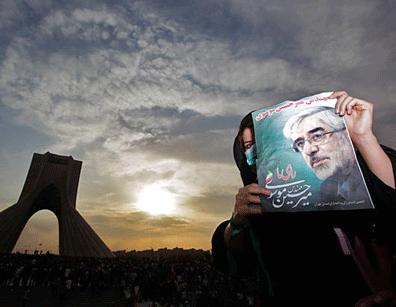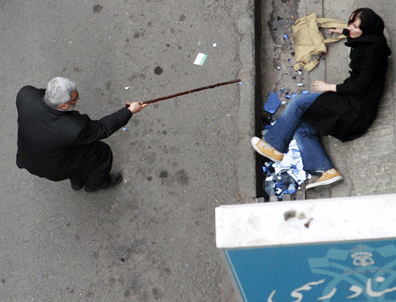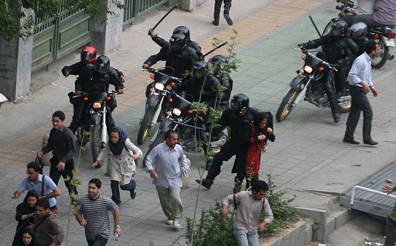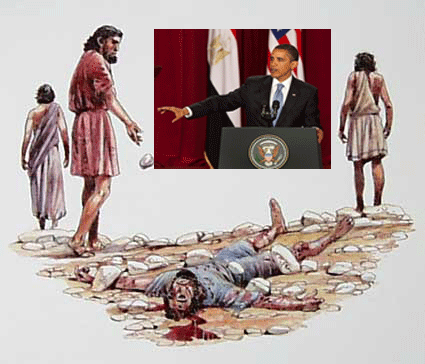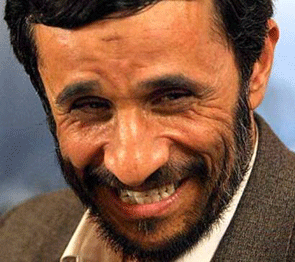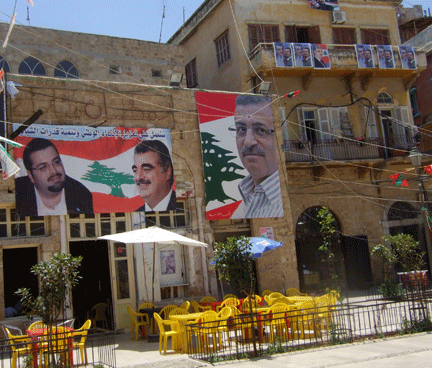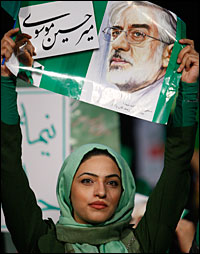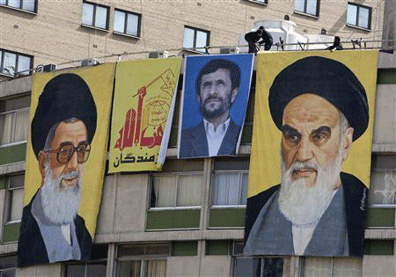
by Abbas Barzegar, The Guardian, June 18, 2009
Since the Iranian government has barred foreign journalists from recording the massive rallies in Tehran in the last two days, news outlets in the world have instead been forced to rely almost exclusively on video feeds from mobile phones, YouTube, and Twitter.
The images have splashed across the screen with the intensity of a horror film. Most of these feeds are sent without confirmation of where the events took place, who is responsible for recording them or even when they occurred. Nonetheless, their gratuitous display by some of the largest and most respected news broadcasters has left the impression that Iran is either under nationwide martial law or experiencing a bloodbath under complete darkness.
But, had the authorities here allowed open coverage of the rallies in the last 48 hours, they would have done themselves a favour. Since the announcement of seven deaths two days ago every gathering here has increasingly taken a more peaceful tone. Likewise the initial overreaction by the security apparatus seems to have been corrected. Continue reading Calm, not conflict, on Tehran’s streets

